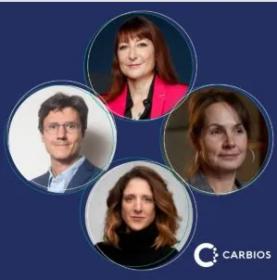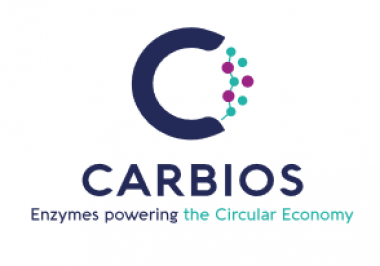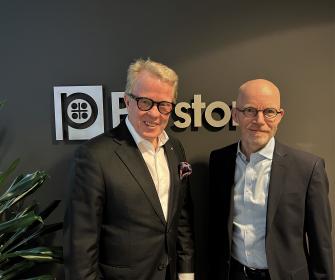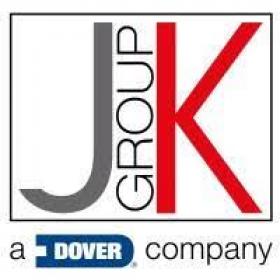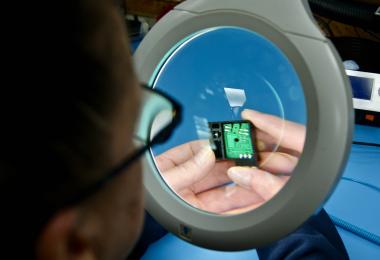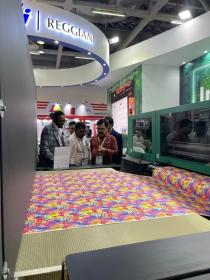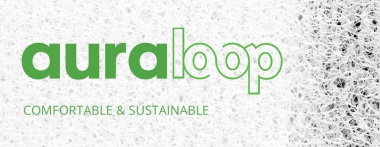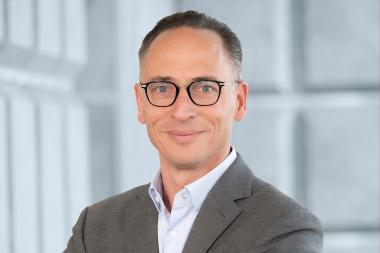Carbios: Four new Board members to strengthen international expertise
- Carbios strengthens its Board of Directors with the appointments of Prof. Karine AUCLAIR, Sandrine CONSEILLER, Amandine DE SOUZA and Mateus SCHREINER GARCEZ LOPES
- Carbios has reached its CSR objective of 60% independent directors ahead of 2024 target date, and has increased its female representation
Carbios‘four new members to its Board of Directors: Prof. Karine AUCLAIR, professor of Chemistry at McGill University, Sandrine CONSEILLER, former CEO of Aigle, Amandine DE SOUZA, General Manager of LE BHV MARAIS, Eataly and Home, DIY and Leisure Purchasing at Galeries Lafayette Group, and Mateus SCHREINER GARCEZ LOPES, Global Director for Energy Transition and Investments at Raizen, have all been appointed members of Carbios’ Board of Directors. In the new structure, Prof. Karine AUCLAIR succeeds Jacqueline LECOURTIER, Sandrine CONSEILLER succeeds Jean FALGOUX, Amandine DE SOUZA succeeds Alain CHEVALLIER, and Mateus SCHREINER GARCEZ LOPES succeeds Jean-Claude LUMARET.
Three of the new members have strong, proven expertise in various industries covering fashion, retail and energy, as well as business development and senior executive management in high-growth markets and sectors around the world. The new scientific expertise will also help enhance and advance Carbios’ research into biological solutions for the life cycle of plastics and textiles. In addition, a sensitivity to CSR issues and proven results in this field was also a key selection factor to join the Board. The new members’ combined strategic vision, solid industry experience and CSR commitments will support Carbios in its industrial and commercial plans.
Prof. Karine AUCLAIR is Professor of Chemistry at McGill University and holds the Tier 1 Canada Research Chair in Antimicrobials and Green Enzymes. She has received numerous awards over the years, including the Clara Benson Award of the Canadian Society of Chemistry, the McGill Tomlinson Professorship, the Leo Yaffe Teaching Award, and the McGill Fessenden Professorship, to name a few. She is an internationally recognized bioorganic chemist with significant scientific contributions to the fields of antimicrobial resistance, biocatalysis and enzymology. Her research led to several patents notably in the clean enzymatic depolymerization of untreated, high crystallinity PET plastics for closed-loop recycling. Her work has been published in nearly 100 peer-reviewed publications in high-impact journals, and often highlighted by the media. As a recognized leader in her field, she is often invited to speak at industrial and academic conferences around the world, and to review theses and grant applications for worldwide institutions.
Sandrine CONSEILLER is former Chief Executive Officer of Aigle (the emblematic French brand committed to sustainable fashion). Prior to joining Aigle, Sandrine was Group Marketing & Branding Executive Vice-President at Lacoste (another historic French fashion brand) from 2011 to 2015. She contributed to the Lacoste maison turnaround with strong growth and numerous professional awards including several Cannes Lions Awards. She was also Member of the Executive Board. Sandrine began her career at Unilever and spent 20 years leading global businesses within various divisions, mainly in Personal Care, in Latin America, Europe, and Asia. Sandrine is also Member of the Board of Phildar (the iconic French knitwear brand), Member of the Board of Raise Sherpa (the first philantropic endowment fund dedicated to start-ups) and is a funding partner of NEO FOUNDERS (a venture fund mentoring impact start-ups).
Amandine DE SOUZA is General Manager of LE BHV MARAIS (French retail, decoration and fashion department stores), Eataly (an Italian gastronomy concept franchise) and Home, DIY and Leisure Purchasing at Galeries Lafayette Group since 2018. She has been a Member of its Executive Committee since 2020. Amandine has 17 years’ experience in different types of companies of various sizes: from family business, to start-up, and multinational. She was General Manager for France at Westwing (an e-commerce start-up) from 2015 to 2018. From 2009 to 2015, she was International Merchandise Director at Casino Group (food and non-food retail distribution). Prior to this, she worked as a strategic consultant at Bain & Company within their Distribution and Consumer Goods Division in France and internationally.
Mateus SCHREINER GARCEZ LOPES is Global Director for Energy Transition and Investments at Raizen (global leader in bioenergy from Brazil), leading technology, new business development and intellectual property at the company. He was previously Global Manager for Innovation and Business Development in Renewable Chemicals at Braskem (the largest producer of thermoplastic resins in the Americas and the world’s largest producer of biopolymers). Before his transition to the corporate world, Mateus held several researcher and lecturer positions on Synthetic Biology and metabolic Engineering at Universities in Mexico, Germany, United States and Brazil. He is also a Board Member of Iogen Energy Corporation, Vice-Chairman of the Board of the Brazilian Association of Bio Innovation, and Advisory Committee Member from the MIT Energy Initiative.
Carbios
Carbios


